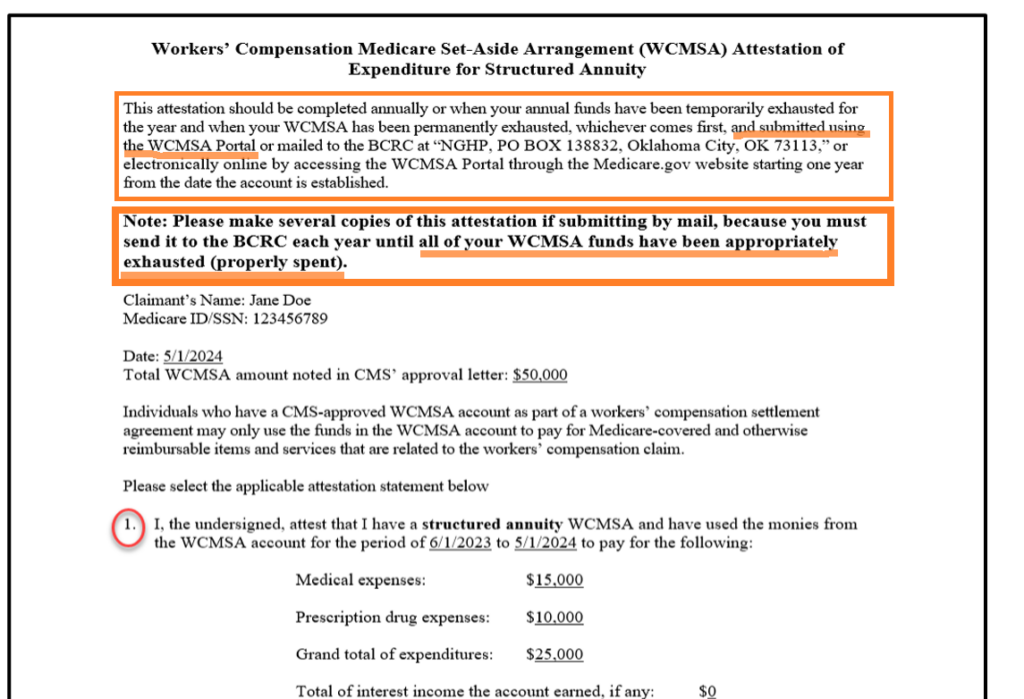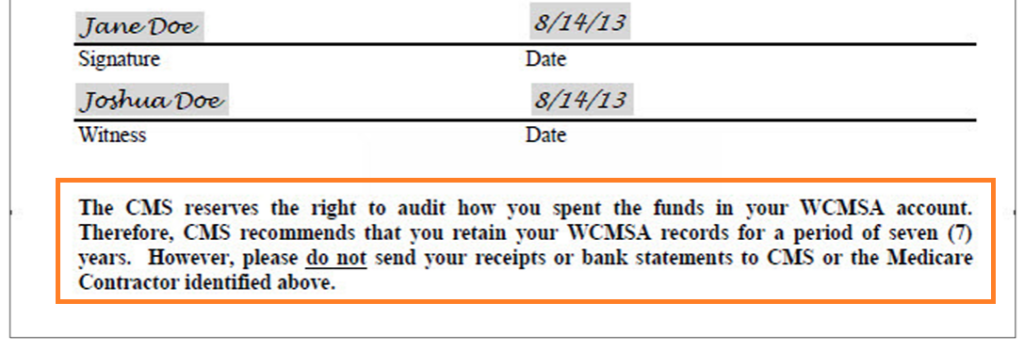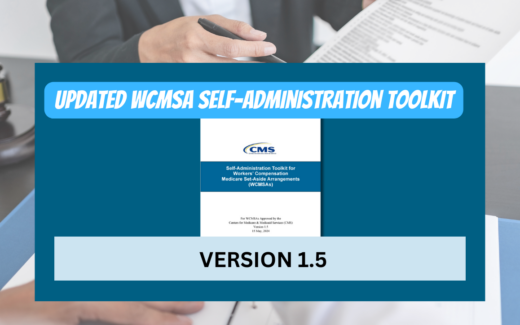On May 15th, the Centers for Medicare & Medicaid Services (CMS) released an updated version (1.5) of its Workers' Compensation Medicare Set-Aside (WCMSA) Self-Administration Toolkit Guide. This guide is essential for all parties involved in the self-administration of WCMSA funds, providing clear instructions and guidelines to ensure compliance with CMS requirements and expectations. Read our full analysis of the significant changes made to simplify attestation reporting for WCMSA accounts and understanding of WCMSA administration responsibilities for Medicare beneficiaries.
What’s Changed in Version 1.5
Section 13: Letters and Examples
| Version 1.4 | Version 1.5 |
| “This form should be completed annually and mailed to the NGHP PO BOX 138832 OKLAHOMA CITY, OK 73113 starting one year from the date of settlement.” | “This attestation should be completed annually or when your annual funds have been temporarily exhausted for the year and when your WCMSA has been permanently exhausted, whichever comes first, and submitted using the WCMSA Portal or mailed to the BCRC at …” |
| “Note: Please make several copies of this form because you must send this form to the Medicare contractor each year until all of your WCMSA has been spent.” | “Note: Please make several copies of this attestation if submitting by mail, because you must send it to the BCRC each year until all of your WCMSA funds have been appropriately exhausted (properly spent).” |
Key Takeaways
Other than minor language refinements to simplify version 1.5 of the Self-Administration WCMSA Toolkit and make it more user friendly for the Medicare beneficiary, the key change was made to the sample attestations in Section 13: Letters and Examples. Both the Attestation of Expenditure for Lump Sum Account and the Attestation of Expenditure for Structured Annuity document samples now have added references to annually submitting the forms electronically using the WCMSAP Portal (in addition to the traditional method of mailing the forms to the BCRC).
In addition, the language has been updated on the Attestation Expenditure Letter to clarify the meaning of ‘appropriately exhausted’ stating, that attestation must be submitted to the BCRC each year until all “WCMSA funds have been appropriately exhausted (properly spent).” Learn more about how WCMSA funds should be properly spent here.

Note: Medicare beneficiaries that self-administer should go through Medicare.gov and sign into their account to access the WCMSA Portal.

These changes focus on simplifying the language in the toolkit and including an easier option for Medicare beneficiaries to submit their attestation letters through the WCMSAP Portal. As a reminder, CMS states on the attestation letter that, “they have the right to audit how you spent the funds in your WCMSA account. Therefore, CMS recommends that you retain your WCMSA records for a period of seven (7) years. However, please do not send your receipts or bank statements to CMS or the Medicare Contractor identified.”
If beneficiaries decide to self-administer their WCMSA account, they have the responsibility to understand all Medicare compliance requirements are met to avoid misusing their funds. However, with the proper resources, like a professional administrator, beneficiaries can settle with ease and have their administrative duties fulfilled for them when needed.
Ametros offers comprehensive support to help all settlement parties understand WCMSA administration compliance throughout the settlement process. Our professional administration service, CareGuard, is designed to ensure compliance with CMS’ requirements, support accurate reporting, and provide the necessary resources for a successful transition of care post-settlement. With Ametros, all settlement parties can be confident that the injured individual will meet all regulatory demands while receiving the best support possible post-settlement.
For more information on how we can assist you with compliance for a future medical settlement, please contact us. With CMS’ focus on clarifying and enhancing medical settlement reporting requirements, it is a great opportunity to ensure the appropriate resources and strategies, like leveraging a professional administrator, are put into place to navigate the evolving regulatory WCMSA landscape.


